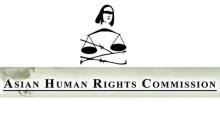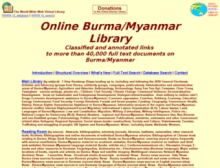Resource information
Over the course of 2013 the Asian Human Rights Commission has followed reports of a larger number of conflicts over land grabs and attempted grabs in Burma, or Myanmar. Some of the conflicts are over recently taken land, and others are reinitiating struggles begun many years ago. These land grabs include the well-known expansion of the Letpadaung Hills copper mine in Salingyi Township, Sagaing Region, under a joint project of the armed forces' holding company and a Chinese partner; the conflict between farmers and police in Ma-Ubin, in the delta, over the taking of land by a private firm with backing of local officials; and, a land grab by the police force itself in Nattalin Township, Bago Region.
Most recently, news reports and online sites have detailed how villagers in Migyaunggan, Mandalay Region, have begun protesting to reclaim land taken from them by an army detachment. The local administration and cantonment board have issued warnings to protestors to desist with their actions. Meantime, senior officials have come to investigate the complaints about the land and learned that the army has no documentation to show that it is entitled to occupy the contested area.
Under noxious laws passed in 2010, prior to the transfer of power to the current semi-elected government in Burma, the army retains authority to designate and use land for a variety of purposes. In the case of the Cantonment Municipalities Law, No. 32/2010, the armed forces can establish bodies for the management of land designated as being part of cantonment towns. Under the Facilities and Operations for National Defence Law of the same year, the armed forces can issue designations concerning land under or adjacent to their facilities...



